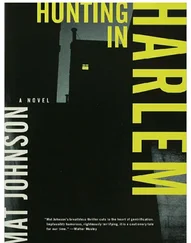I keep waiting to hear Roslyn walk down the steps afterward — my digestive system is out of its element with the Ethiopian food, and it’s about to get loud under my duvet — but she goes into the bathroom. It’s horrid in there, tiles ripped up on the floor, calcium stains in the cracked tub; Roslyn deserves better. She must have decided she does too, because I hear her leave it without flushing.
From the creaking doors and floorboards, my ears follow Roslyn going into the next room. There’s nothing in there, just building materials, ladders, my father’s debris. But I hear her. Pausing at the entry. Then walking in steady, deliberate footsteps into the room. Then walking back out. I hear her in the hall again, and just when I think she’s finally going to leave, I hear her do the same thing at the next bedroom. Walk inside in even, rhythmic footsteps. Then walk out again. Then the next room. She’s measuring , I realize. With her steps. Like my father used to do when he forgot his tape ruler. I don’t know why. I don’t know what she wants or what she’s after. But I hear as she stands still, in the last doorway, taking it in. Pausing long enough to really inspect the space, then closing that last door lightly behind her and heading back to the stairs finally.
OFF THE COAST of Maine, about an hour north of Portland, on an island resting on the mouth of the New Meadows River, among those last spatters of New England where North America blends into the Atlantic, there lived a community of mulattoes. For real. There were about forty of them, and most shared a common black ancestor, a sailor who settled in the area a century earlier. The island, Malaga, as well as the town of Phippsburg just across the narrow strip of water from it, once had a stable economy, when shipbuilding and the commerce of the sea made the area a prime location. But the movement toward steam-powered boats at the end of the nineteenth century left these communities poor and isolated, like many coastal Maine towns. Still, impoverished as Malaga was, it did have some wealthy benefactors, and by 1910 a new school was built and the island showed signs of long-term improvement. The community might still be there today, the sole black neighborhood of rural Maine. But at the same time some were seeking to help this group, a plan was hatched to save the local economy by turning that part of the river into a tourist destination for wealthy urban vacationers. This plan lacked room for a bunch of poor Negroes sitting in the middle of the scenic landscape. Newspapers soon raged with headlines like STRANGE COMMUNITY ON MALAGO [sic] ISLAND and told stories of the “peculiar people” and their “romantic tales.” Twisted by yellow journalism, the community became cast as a miscegenated Gomorrah. The public was presented with a living representation of the hybrid splicing H. G. Wells had just written a novel about, only this time, it was The Isle of Doctor Mulatto . This distorted and warped story provided cover for the state to seize control of Malaga and evict its residents, destroying the entire community. Eight of the Malagans, people too old or young to take care of themselves, were sent to The Maine School for the Feeble-Minded, where all but two would die. The state even dug up Malaga’s cemetery, dumping the bodies in the sanitarium’s potter’s field, lest their blackness taint the island soil like lime.
It is a powerful, heartbreaking tale, even interpreted in comic-book form by an eleven-year-old. An eleven-year-old whose multiple stick figures look like a caveman’s interpretation of a spider orgy. Cory Kurtz has no talent. Sure, he’s eleven, but I have more faith in his absence of talent than Constantine had faith in God. Every time I look at his attempts at art I think, He’s going to make a great accountant someday, the kind who never tries any funny stuff because he has no imagination. That last judgment I may have to reassess because the illustrations he has mounted on poster board before the class show an abandoning of realism so bold that if I didn’t know the source I’d assume it was intentional. In an effort to negotiate his lack of skill, I’ve allowed him to create his images using collage instead, and little Cory Kurtz has seized the opportunity to populate the entire island of Malaga with images of mixie action superstar Dwayne “The Rock” Johnson. Lots of Dwayne “The Rock” Johnsons. Many different images of his head, from many different photos, all cut and pasted and put on coat hanger bodies. Some with long penciled hair and circle breasts, as Dwayne “The Rock” Johnson transgenders for the role. In this dystopian vision, our hero has been cloned and trapped on the nineteenth-century New England island, where he roams among mansions which, due to lack of perspective, seem smaller than him.
“I wanted to make sure that you could see they were all related,” Cory responds on inquiry.
“Okay. So, the houses—” I begin, and really what I want to talk about is the word perspective and remind him what I’ve been trying to tell him for months, but Spider takes over.
“The houses, they’re a bit grand. I’m pretty sure this one here is Thomas Jefferson’s Monticello. On Malaga, there were more traditional, solid homes, but many of the people lived in poorly insulated shacks. Because they were broke.”
“I wanted them to be living large. That was important to me,” Cory shoots back.
“Well, that’s understandable. But it misses the point. If they could afford grand mansions like this, they would have never been wiped off the face of the map.”
“Come on, anything can be wiped off the map,” I have to jump in. “There are tsunamis, tornadoes, hurricanes, wars. And that’s just the physical; the emotional is worse. You can be in love with someone — or at least have deep, heavily weighted feelings for them — then, poof, it’s all gone. Nothing left. Everything can be erased in an instant and you will never even see it coming.”
The class just stares at me. A bunch of kids, they don’t understand me, my ennui. They’re still at the beginning, they don’t know it all ends in excrement. The teens, you’d think, would at least suspect this outcome, but they’re silent as well. Kimet doesn’t say a word. I would think he’d be able to relate given his parents’ divorce, but restraint keeps me from saying this out loud. They all want to leave, I see. They’re even packing their bags — have we pushed through another hour of class? But I was just getting started.
In my hand is an envelope, in that a card, and on that a bunch of writing. It was delivered to me by my daughter, just before class, with enough time to open it if I could have brought myself to do so in front of everyone. The writing on it is not my daughter’s, but Sunita Habersham’s. Sunita Habersham, who has not talked to me in five days, since the night of our group date. Sunita Habersham, who responded to a text two days after the event with, Sorry, been busy , and nothing more. Just those three words. It’s not that I haven’t seen her — I do nearly every school day, when she walks by me nodding hello like I am just another virtual stranger on a world covered with them. Not that I don’t hear how she’s doing nearly every day from Tal, because she’s doing wonderfully. She’s a wonderful mentor. She’s Tal’s favorite dance teacher ever, favorite adult, favorite human being in every way. Sun is in Tal’s school-day life, completely. She has left mine, equally so.
“Look at the Malagans!” I implore the room, yelling it. Some of them, they startle. I don’t care. “Look at them! Can you see them? No, you can’t. Because they’re gone. That’s life, kids. It’s all destined for nothingness, eventually.”
Читать дальше












